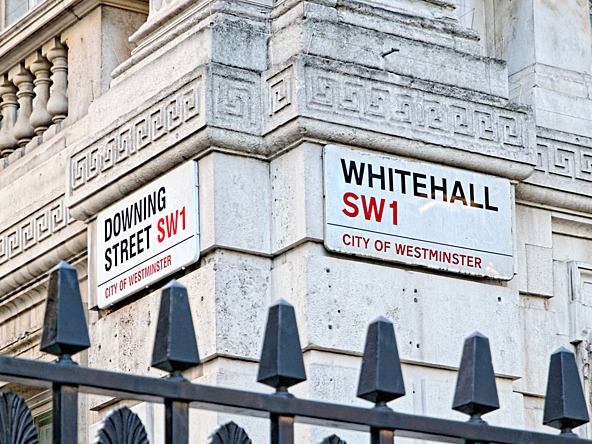Public trust in government sees further decline

The annual research by the National Centre for Social Research (NatCen) found that 12% of the British public trust governments to ‘put the country’s interest before their party’s interests ‘just about always’ or ‘most of the time’, which is lower than the previous record low of 14% registered in 2023.
NatCen has been conducting the BSA survey since 1983, and the proportion of people who trust the government to put the public first has been steadily declining over time.
The survey found that 19% of the British public think the current system of governing Britain needs little or no improvement; which is unchanged from the record low registered before the election.
Support for a change in the UK’s electoral system is now at 60% – while 36% say that we should keep the current system.
Speaking at the launch of the BSA survey results this morning ( 25th June), Alex Scholes, research director at NatCen, said: “The decline in trust and confidence is likely to be influencing attitudes to electoral reform.”
Support for keeping the electoral system the same was greater than support for change until the 2020s and the pandemic, Scholes explained. “Since then, support has been increasing and it is now at 60%, the highest level it has ever been.”
For the first time, people are more likely than not to support electoral reform regardless of which political party they support, the most recent BSA survey found, with support standing at 55% among Labour supporters, 52% among Conservatives, and 56% of Liberal Democrats. Support is far higher among Green supporters ( 90%) and Reform supports ( 78%).
Discussing the reasons for the decline in trust and confidence in government, Scholes pinpointed Brexit – while it initially boosted the trust of ‘leave’ voters, this has since declined – as well as increased dissatisfaction with public services and the fact that a significant proportion of people are facing financial struggles.
Commenting on the research, Scholes said: “The 2024 election highlighted significant challenges to Britain’s traditional two-party system and the result has yet to restore public trust and confidence. With voter trust at an all-time low and a growing support for electoral reform, the political landscape is poised for potential transformation. Whether this will lead to substantive changes in how the country is governed remains to be seen.”
Speaking at the BSA event, Professor Sir John Curtice outlined the findings on public opinion of the challenges facing the new Labour government.
Discussing the post-pandemic challenges facing the government, Curtice outlined the context of little economic growth, stagnant living standards and record hikes in taxation and spending, coupled with poorly performing public services and higher government debt.
“The challenge for the government is how to return to economic growth and better public services while the economic firepower is significantly restrained,” said Curtice.
NatCen has been asking BSA participants about their feelings towards their household income since the financial crash of 2008. The 2024 survey found that there had been a decline in those who said they felt comfortable about their finances, which has been declining since 2016. A record 26% report to be struggling on their current income.
Dissatisfaction with the National Health Service has also increased. Over half of the public ( 59%) are dissatisfied with the NHS – a record level of dissatisfaction, said Curtice, who also outlined growing discontent with social care, with 53% of the public saying they are satisfied, and only 13% saying they’re satisfied with it.
The survey found that 61% believe that taxes for people on low incomes are too high – but 44% believe that taxes for those on high incomes are too low.
Support for increased taxation and spending decreased from 46% in 2023 to 40% in 2024 – compared with the 31% recorded in 2010, after the financial crash.
Concluding, Curtice noted that Labour have correctly identified challenged living standards and unhappiness as major concerns for voters but added that the public are “seemingly reluctant” to accept reduced public spending beyond the NHS.
“The BSA has been asking since 1983 about if the government had to choose between increasing taxes and public spending or reducing, what should they do. Typically, people say they should reduce.
“When spending has been cut, people start to react to that – we see that in data from the 90s. New Labour increased public spending and taxes and after a while we said: ‘thanks, but can you now tax us less?’. That pertained until Osborne austerity and during the pandemic, despite the increase in the size of the state.
“Now, just 40% of people say we should be spending more, so we are now seeing some reaction to the size of the state…. the jury is out, to some degree, as to whether or not we have embraced the bigger state.”
Methodology
The most recent BSA survey consisted of 4,120 interviews with a representative, random sample of adults in the UK and was conducted between 16 September and 27 October 2024. For the first time, the BSA 2024 survey included participants living in Northern Ireland and those aged 16 and 17 years old.
This year’s survey was completed online by a representative sample of respondents who were invited at random by post. There was an option to be interviewed by phone if preferred. Prior to 2020, BSA was a face-to-face survey, but this was changed as a result of the public health measures introduced in the wake of the pandemic.

We hope you enjoyed this article.
Research Live is published by MRS.
The Market Research Society (MRS) exists to promote and protect the research sector, showcasing how research delivers impact for businesses and government.
Members of MRS enjoy many benefits including tailoured policy guidance, discounts on training and conferences, and access to member-only content.
For example, there's an archive of winning case studies from over a decade of MRS Awards.
Find out more about the benefits of joining MRS here.














0 Comments